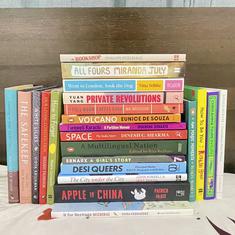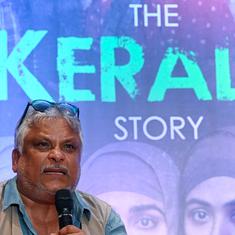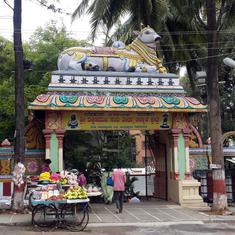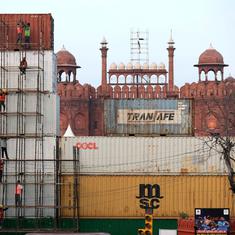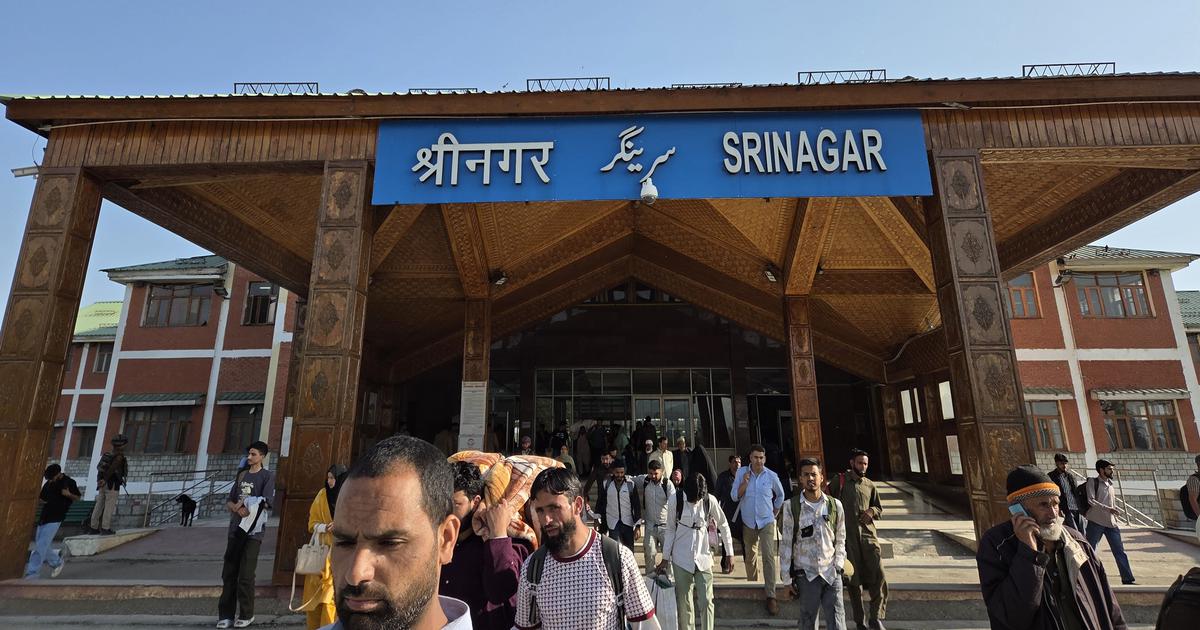On July 14, the Central Administrative Tribunal ruled that it would no longer be mandatory for an applicant to the post of a naib tehsildar in Jammu and Kashmir to know Urdu. To insist on it, the tribunal said, would be “discriminatory”.
A few days later, on July 19, the Jammu and Kashmir School Education Department kicked up a fresh storm after it said that it was seeking comments on a proposal to introduce Sanskrit in schools in the Union Territory.
Hindi and Sanskrit are central to the ideological project of the Bharatiya Janata Party-led central government which has been accused of sidelining regional and local languages in other Indian states. Political parties in Kashmir reacted sharply to the tribunal’s order, criticising it for imposing Hindi while not considering the administrative and cultural reality of the region.
In Jammu and Kashmir, Urdu is the language of revenue and land records, police proceedings at the grassroots level, lower judiciary, lower rungs of administration, Muslim marriages and contracts.
The union territory has scores of newspapers in Urdu. Within the urban and elite spaces of the Kashmiri society, spoken Urdu has attained the status of mother tongue for parents to communicate with their children. Most of the Islamic religious literature accessible to the Muslims in Jammu and Kashmir is in Urdu.
Observers, however, say the tribunal order is merely an acceleration of the trend since August 2019, when New Delhi unilaterally abrogated the special status of Jammu and Kashmir and bifurcated the state into two union territories under the control of the Centre.
While Jammu and Kashmir was under the Centre’s administrative control, Lok Sabha passed the Jammu and Kashmir Official Languages Act, 2020, notifying Hindi, Kashmiri and Dogri as its three official languages, besides English and Urdu.
Imposing Hindi in Jammu and Kashmir has been part of a larger agenda of the BJP, said a political commentator in Kashmir, who did not want to be identified. “From their point of view, this [after August, 2019] was the easiest time for them to impose Hindi in a region where hardly anyone knows it or uses it.”
It ties in with the saffron party’s long-standing agenda to make Hindi India’s national language, said the commentator.
CENTRAL ADMINISTRATIVE TRIBUNAL JAMMU has stayed Subordinate Service Recruitment Rules 2009, and ordered JKSSB to allow aspirant having knowledge of any five official languages enumerated in J&K official languages Act, 2020, which includes Urdu, Hindi, Kashmir, English & Dogri. pic.twitter.com/wTKn2KHKoU
— Mohabat Ali Chowdhary (@ChMohabatAli) July 14, 2025
No need to know Urdu?
After the government on June 9 invited applications for the posts of naib tehsildars, the BJP had launched a campaign against the Urdu-only requirement for the revenue department post.
A naib tehsildar assists the tehsildar, who manages land records and law and order in a tehsil. Under the Jammu and Kashmir Revenue (Subordinate) Service Recruitment Rules, 2009, a candidate for the post had to have studied Urdu while graduating from college.
The tribunal, while responding to a petition filed by an aspirant who had challenged the rule as discriminatory, stayed the provision in the recruitment rules that made it mandatory for a revenue department official to know Urdu.
In its ruling, the Central Administrative Tribunal said that the provisions mandating “Urdu as the exclusive language qualification” appear to be “discriminatory, especially in light of the Jammu and Kashmir Official Languages Act, 2020”.
The tribunal directed the recruitment board to accept applications for the post of naib tehsildar from graduate candidates with the knowledge of any of the five official languages: Hindi, Kashmiri, English, Dogri and Urdu.
Jammu and Kashmir Chief Minister Omar Abdullah wondered about the effect on administrative functioning if the selected candidates did not know Urdu. “Even before Independence, our revenue records were in Urdu,” said the chief minister. “Now, if you appoint staff who do not understand the language, how will they perform their duties?”
The BJP, which won all the 29 seats in the 2024 Assembly elections from Jammu region, celebrated the tribunal’s verdict. A day after the order, members of the BJP’s youth wing, theBharatiya Janata Yuva Morcha, held celebrations at Srinagar’s clock tower.
“The notice was anti-Constitution,” Arun Prabhat, the president of Bharatiya Janata Yuva Morcha told reporters in Srinagar on July 15. “Our Constitution’s preamble with Articles 14 and 16 are for equal opportunity for all and against any discrimination on the basis of colour, creed or caste. The J&K government notice was discriminatory to four out of five languages declared as official languages here.”
#Jammu
— Priya Sethi~Former Minister J & K (@priyasethibjp) June 10, 2025
We Stand with the youth of Jammu region ...
Making #Urdu language proficiency #compulsory in the recently advertised #NaibTehsildar (NT) recruitment is a blatant discrimination against the youth of the #Jammuregion, Such discriminatory practices will not be #tolerated. pic.twitter.com/lLq7dSN1Q4
But officials in the revenue department say knowing Urdu is imperative for anyone joining the department. “The revenue record we have is highly technical. Many jargon-laden Urdu words in records are originally Persian and have been in use since centuries,” explained a revenue official, asking not to be identified.
According to the official, the revenue records in Urdu are generally not even comprehensible to normal Urdu readers. “The revenue record is very difficult to understand for a common man because it carries many technical terms he or she is not familiar with,” said the official. “How is a non-Urdu background official supposed to carry out his mandated task if he is not even able to read or understand a file before him?”
Former chief minister and Peoples Democratic Party president Mehbooba Mufti said Urdu was being “communalised”. “Our revenue records and administrative work continue to be maintained in Urdu, and it is only logical that applicants for the post of Naib Tehsildar possess basic proficiency in the language,” she wrote on X.
Peoples Conference leader Sajad Lone said the loss of Urdu’s exclusivity for the jobs of naib tehsildar was “linguicide”. “This language has an emotional and a historical connect with Kashmiris and that will never go away,” said Lone in a social media post. Lone too argued that Urdu’s essentiality in the posts for naib tehsildar was justified as “all revenue records are in Urdu”.
Urdu omission, Sanskrit proposal
Four days after the tribunal order, Waheed Parra, a legislator of the Peoples Democratic Party, accused the ruling National Conference of omitting Urdu from a fresh exercise to digitise land records across Jammu and Kashmir.
“This time, the process being carried out exclusively in English, with Urdu completely REMOVED, a language that has been integral to our revenue records for generations (sic),” Para wrote in one of his posts on X.
Scroll sent a questionnaire to Jammu and Kashmir Chief Minister Omar Abdullah, who also holds the portfolio of the revenue department, asking about Parra’s allegation. The story will be updated if there is a response.
Days later, a news report claiming that the Union education ministry was planning to introduce Sanskrit as a mandatory subject from Classes 6-10 in schools in Kashmir sparked fresh anxiety.
In a detailed clarification, the school education department said that there was no such proposal but that comments had been sought on a representation to include Sanskrit in schools and colleges.
According to the department, the lieutenant governor had received a representation from Purshotam Lal Dube on the inclusion of Sanskrit under the provisions of the National Education Policy, 2020. Dube is the chairperson of the Samskrita Bharati Jammu Kashmir Trust to promote Sanskrit in Jammu and Kashmir.
Dube’s proposal was sent ahead to the Director School Education Jammu /Kashmir and then to “sub-offices for comments.” “…the department has not proposed, approved, or initiated any process for the inclusion of Sanskrit as a mandatory or optional subject in schools across Jammu and Kashmir,” it clarified.
Centrality of Urdu
Urdu has a long history in the region where Persian first held sway for more than 200 years.
Persian was introduced in Jammu and Kashmir during the reign of Shahmiri rulers in the 15th century. In 1889, Dogra ruler Maharaja Pratap Singh declared Urdu as the official language of Jammu and Kashmir, replacing Persian as the court language which had been in vogue for at least three centuries.
But Urdu was not the first choice of the Dogra rulers. Pratap Singh’s father Maharaja Ranbir Singh had attempted to introduce Dogri as the language of his court but the language paled before the highly evolved Persian.
The decision to introduce Urdu was shaped by the growing influence of the British in the affairs of Jammu and Kashmir. The British had already replaced Persian with Urdu across parts of mainland India.
Urdu became a neutral language to streamline communication in the linguistically diverse princely state of Jammu and Kashmir. Several decades before being declared as an official language, many accounts suggest, Christian missionaries visiting the region had introduced the language in Jammu and Kashmir.
Urdu continued to be the official language under the Jammu and Kashmir Constitution, which was adopted in 1956. Under Section 145 of Part XI of the now annulled Constitution of Jammu and Kashmir, “the official language of the state shall be Urdu but the English language shall unless the legislature by law otherwise provides, continue to be used for all the official purposes of the state for which it was being used immediate before the commencement of this constitution”.
Urdu after 2019
Over the decades, Urdu has been effectively sidelined at the top rungs of bureaucracy. From the appointment of non-local All India Service officers in Jammu and Kashmir who preferred English over Urdu in early 1960s to the growing assertion of language-driven identity politics within the different regions of Jammu and Kashmir, there are ample reasons behind the decline of Urdu.
Since the former state lost its autonomy and constitution in 2019, the fading of Urdu has gained an obvious momentum.
In 2020, the Lok Sabha passed the Jammu and Kashmir Official Language Bill, 2020, which notified Hindi, Kashmiri and Dogri as the three official languages of the union territory.
The move was largely seen as an attempt to pander to both regions of the Union Territory, but the declaration of Hindi as one of the official languages of a Muslim-majority region had raised eyebrows.
There have been instances where the honour accorded to Urdu before August 2019, have been ignored. For instance, it was a customary practice to publish the former state’s budget in English and Urdu. But since becoming a union territory, the the budget was being published in Hindi and English. This year, budget was published in three official languages: Hindi, English and Urdu.
Similarly, in April 2020, the union territory administration renamed the former state’s Public Health Engineering, Irrigation and Flood Control Department as the “Jal Shakti Department” – a Hindi name.
